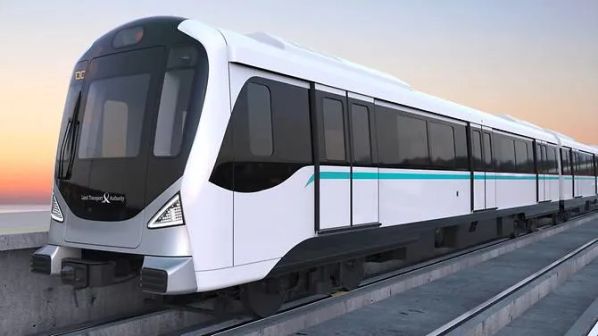The investment will be divided between four contracts, which will cover:
- the design and construction of three metro stations and 3km of viaducts ($S 320.4m)
- the provision of CBTC signalling and half-height platform screen doors ($S 215.5m), and
- two contracts for the provision of Integrated Supervisory Control (ISCS) and communications systems, with a combined value of $S 146.6m.
Work on the JRL’s Toh Guan, Jurong Town Hall and Pandan Reservoir stations, as well as the accompanying 3.6km of viaducts, is expected to begin later this year and will be carried out by a joint venture of Daewoo, South Korea, and local firm Yongnam.
Both companies have previous experience working on the Singapore metro, with Daewoo also currently contracted for the construction of Stevens station on the Thomson - East Coast metro line. Yongnam is also currently involved in the construction of the North-South Corridor project, and previously worked on the construction of Canberra station on the North-South Line (NSL).
Toh Guan station will serve existing residential areas in the Jurong East Central area, as well as Crest Secondary School. Jurong Town Hall will serve commuters travelling to and from International Business Park. Pandan Reservoir will serve to residents of Teban Gardens and West Coast Road, as well as the Commonwealth Secondary School.
The contract for CBTC signalling and platform screen doors has been awarded to Siemens, and includes the design, manufacture, supply, installation, testing and commissioning of equipment for the entire JRL. The signalling system will support fully automated train operation and will be equipped with condition monitoring capabilities to support predictive maintenance.
Siemens previously installed its Sirius CBTC on Singapore’s Downtown Line (DTL) and was also awarded a €90m contract to install CBTC and platform doors on the line’s 2.2km extension from Expo to Sungei Bedok in March 2018.
The contracts for ISCS and communications systems were both awarded to ST Engineering Electronics (STEE), Thailand. STEE will provide the equipment and framework for the operation of fully automated train services, including radio, video surveillance and travel information systems.
STEE is also currently working on the implementation of ISCS and communication systems Singapore’s Circle and DTL extension projects.
The announcement follows plans unveiled on March 5 by minister for transport Mr Khaw Boon Wan to invest $S 60bn in upgrades and expansion to the Singaporean metro network before 2030.
The 24km JRL is the seventh metro line in Singapore and was originally announced as part of the government’s Land Transport Master Plan in 2013. Upon completion in 2028, it will incorporate 24 stations including three interchanges at Jurong East, Choa Chu Kang and Boon Lay stations. It is planned for completion in three phases:
- phase 1, Choa Chu Kang - Tawas (opening 2026)
- phase 2, Tengah Plantation - Pandan Reservoir (opening 2027), and
- phase 3, Enterprise - Peng Kang Hill (opening 2028).
The line is expected to significantly improve connectivity for 60,000 households in the Jurong area and boost economic activity and development in the west side of the city. Upon completion, it will connect key areas and institutions including the Jurong Industrial Estate, Jurong Innovation District, and the Nanyang Technological University (NTU).
For detailed information on metro projects around the world, subscribe to IRJ Pro.

